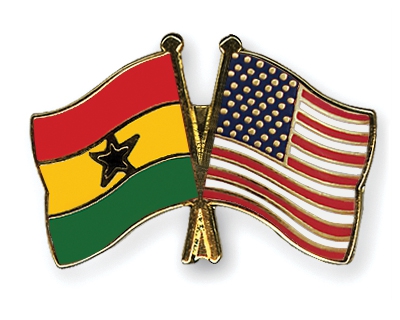 The United States (U.S) Embassy in Accra, in collaboration with the Knutsford University Collage on Wednesday, held a panel discussion on the topic: “Women in Agriculture: Reversing Trends, Changing Lives.
The United States (U.S) Embassy in Accra, in collaboration with the Knutsford University Collage on Wednesday, held a panel discussion on the topic: “Women in Agriculture: Reversing Trends, Changing Lives.
The programme attracted stakeholders from the Agricultural sector majority of whom were young women with an aim to share knowledge, achievements and challenges of women in agriculture.
Mrs Elizabeth Ategou, the Cultural Attaché of the U.S Embassy in her opening remarks underscored the important role that women played in agriculture and their contribution to the Gross Domestic Product.
She said giving them further push through sustained investments, would produce a multiplier effect, as they usually reinvest a large portion of their incomes in their families and communities to enhance national development, as women had the ability to use very little resources to achieve greater outcomes.
Mrs Ategou said the programme was also part of the activities to climax the annual Women’s History Month celebrations, and to discuss how best to support women to expand their production and businesses, as well as whip the interest of the youth to take to agriculture as a business.
The panel discussion which was moderated by Ms Monipel Ansong, the Chief Executive Officer and Founder of MS Food Safety, led Madam Stella Saaka, the Regional Organising Secretary of the Women in Agriculture Platform and the 2019 U.S Embassy Ghana’s Woman of Courage awardee, Ms Margaret Agyeman, an Agronomist and Agriculture Consultant, and Ms Portia Agyei-Yeboah, Founder of OAK Foundation, the discussants, to share their knowledge and experiences on the subject with the participants.
The convergent points raised by the three discussants included the fact that for women to thrive in agriculture, there should be persistent advocacy for their inclusion both at the decision-making levels, as well as giving them rights to land ownership.
They admitted that although women were now doing tremendously well in the agricultural sector compared to previous years, there was still more to be done in areas such as encouraging more young women to get passionate about agriculture as a business, being innovative, and improving collaboration and networking with institutions to leverage the use of existing resources and support for the expansion.
Other areas of concern raised by the panel included challenges with access to technology, funding for small holder women farmers, as well as market for their produce.
Madam Saaka shared with the participants how she was able to engage with the traditional authorities in the Talensi District of the Upper East Region to release some productive lands to women in the community for farming, and also provided them with training for value addition to their produce.
She spoke about the funding support received from the United States Agency for International Development (USAID) to train some young girls in the use of sweet potatoes for making drinks, and the market access created through her fervent advocacy and engagement with other stakeholders.
She said although not easy, there was the need to encourage women to open up for expansion through their acceptance of the use of new technologies to change their old methods of farming.
Ms Agyei-Yeboah said women farmers needed capital, in the form of flexible loans for sustainable agriculture, and appealed to the private sector to help in addressing this concern, and also urged women to form groups so they could access such funding assistance for their expansion.
Ms Agyeman indicated that agriculture was the sure way to eliminating poverty especially among women, and urged them to remain focused in expanding their production levels from peasant-based to large business farming entities.
Professor John Essel, the Pro-Chancellor of the Knutsford University College, pledged the institutions commitment towards stepping up its partnership with the U.S Embassy to host new programmes that would open doors of opportunities for the youth to enter into agriculture for ensure food security.
Source: GNA























